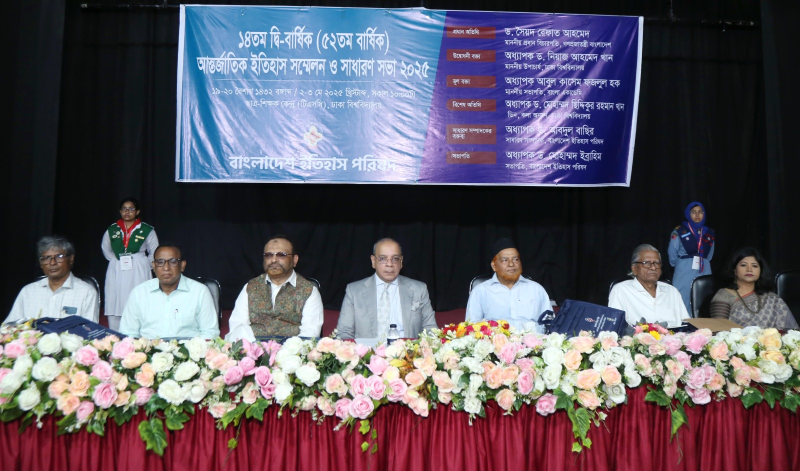- Puppet show enchants Children as Boi Mela comes alive on day 2 |
- DSCC Admin Salam’s drive to make South Dhaka a ‘clean city’ |
- 274 Taliban Dead, 55 Pakistan Troops Killed |
- Now 'open war' with Afghanistan after latest strikes |
- Dhaka's air quality fourth worst in world on Friday morning |
CJ urges unity, reflection to build peaceful Bangladesh

Chief Justice Syed Refaat Ahmed on Friday said Bangladesh now has a rare and golden opportunity to chart a path toward peace and prosperity by learning from past mistakes and responding to the hopes of its people, especially in light of recent student-led and public uprisings.
“To seize this opportunity, collective effort is essential. If the expectations and dreams of the people in this renewed Bangladesh are not fulfilled, the nation risks falling behind,” he said while addressing the opening session of the two-day ‘14th Biennial International History Conference and General Meeting’ organised by the Bangladesh Itihas Parishad at Dhaka University.
The Chief Justice noted that he has already unveiled a roadmap for judicial reform aimed at restoring public confidence in the judiciary and ensuring justice. He said implementation is underway and litigants are beginning to experience its positive impact.
He highlighted that a new ordinance has been enacted to streamline the process of appointing High Court judges, and that appointments to the Appellate Division are now being carried out transparently through the Supreme Judicial Appointment Council.
Underscoring the importance of history, the Chief Justice said, “A nation’s consciousness, achievements, and sacrifices are all reflected in its history. It serves as both a guide and a source of inspiration for the future.”
He emphasised that history is not confined to books but lives on through museums, documents, artifacts, architecture, and memorials—and that it is the duty of all citizens, not just historians, to preserve it.
Dhaka University Vice-Chancellor Prof Niaz Ahmed Khan inaugurated the conference, which was chaired by Prof Mohammad Ibrahim, President of the Bangladesh Itihas Parishad. Prof Dr Mohammad Siddiqur Rahman Khan, Dean of the Faculty of Arts, was present as a special guest.
Prof Abul Kashem Fazlul Haque, President of Bangla Academy, delivered the keynote address, while Prof Dr Abdul Bashir, General Secretary of the Parishad, gave the welcome speech.
Three scholars received the 'Bangladesh Itihas Parishad Book Award' for the best history books published in Bengali years 1430 and 1431.
Over the two-day event, around 100 research papers will be presented by university faculty and researchers across 18 sessions.

